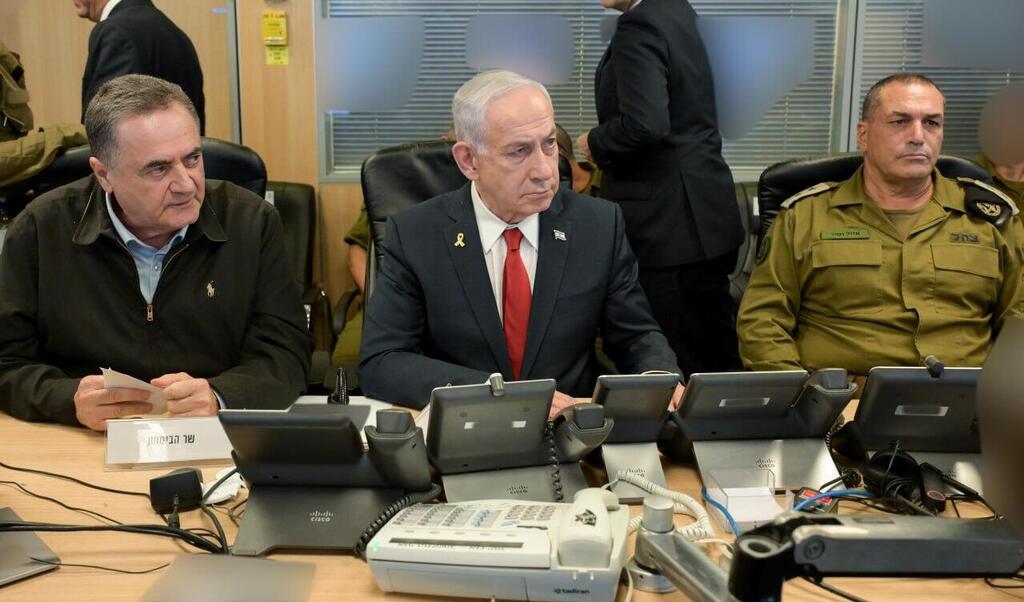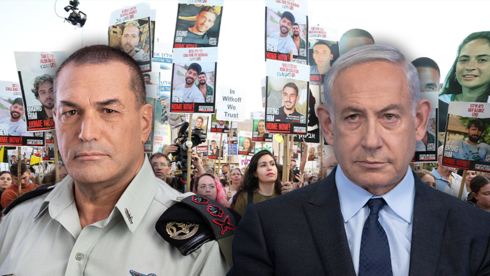Hamas is waiting for an official response from Israel on a proposed hostage deal, while families of captives are pressing for immediate action. IDF Chief of Staff Eyal Zamir told Israel’s political leadership that “we have created the conditions for the release of the hostages,” and the Hostages and Missing Families Forum said, “There is a deal on the table; it must be taken.”
2 View gallery


Defense Minister Israel Katz, Prime Minister Benjamin Netanyahu and IDF chief Eyal Zamir
(Photo: GPO)
About a week after Hamas agreed in principle to a partial deal, a senior Hamas official said the movement has yet to receive an official response to its latest proposal and has not been presented with any new suggestions for a broader, comprehensive deal. He accused the Israeli government of “procrastination and evasion” but said Hamas remains ready to negotiate a cease-fire with “full national responsibility and an open mind.”
Sources familiar with the details say Hamas is raising obstacles and is unwilling to accept Israel’s conditions, which include disarmament, demilitarization of Gaza, and ending Hamas involvement in governing the territory. Hamas has rejected these demands, offering only to refrain from acquiring new weapons, a position Israel considers a “non-starter.” This has left mediators focused on the possibility of a partial deal.
Security sources say Netanyahu believes military operations in Gaza City must advance to demonstrate Israel’s seriousness, potentially pressuring Hamas to compromise. Hamas, however, is reportedly wary of an assault on its last stronghold and may prefer a negotiated deal that halts military action.
Last Thursday, Netanyahu announced he had ordered immediate negotiations to secure the release of all hostages and define conditions for ending the war. Aside from exploratory talks, progress has been limited. No decisions have been made regarding when negotiations will resume, where they will be held, or the composition of the Israeli delegation. Some Israeli officials prefer moving talks from Doha to Cairo, but Qatar’s refusal to give up its role has complicated the planning.
Zamir, during a visit to a Navy base, said Operation “Gideon’s Chariots” had achieved three objectives: “We dealt a severe blow to Hamas, removed threats from the border and communities, and, as a result of the military pressure, created the conditions for the release of the hostages.”
At the Hostages and Missing Families Forum, officials reacted strongly to Zamir’s remarks. “The chief of staff is saying what most of the nation demands—a comprehensive agreement to return all 50 hostages and end the war. Netanyahu, it is time to fulfill the people’s will. You do not have a mandate to continue an endless war. You do not have a mandate to sacrifice hostages, soldiers and Israeli civilians.”
The forum added, ahead of planned protests in two days, “It is time to stop the spin and sabotage. There is only one path to Israeli victory and national revival—the return of all hostages and the end of the war. Israel stands with the hostages, the soldiers in active and reserve duty, the displaced and the wounded. Tuesday will be a day of solidarity for their return.”




